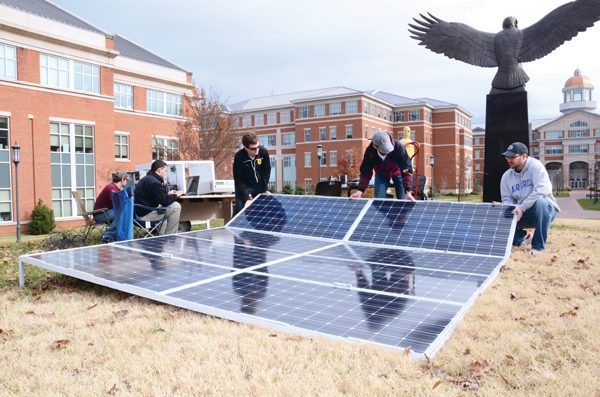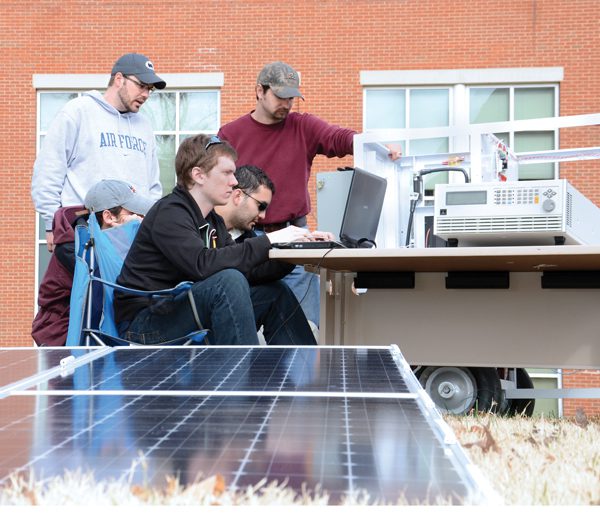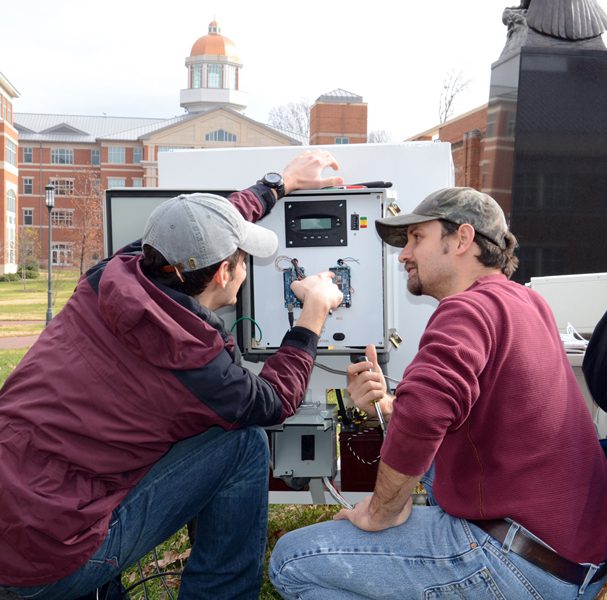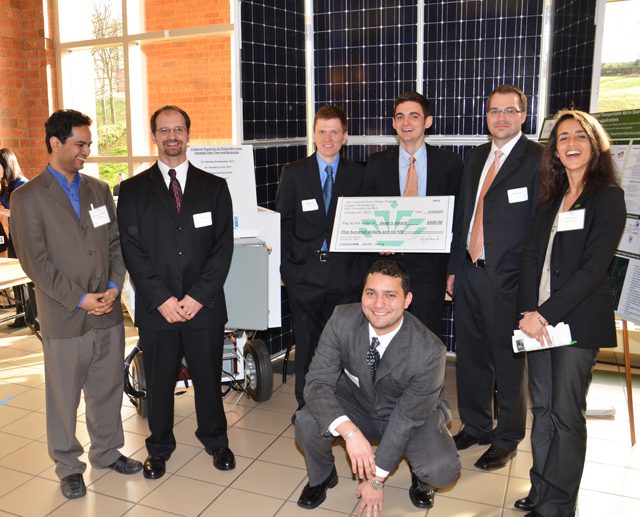Renewable and Modular Micro-Source for Smart Grid Applications

The purpose of the project was to design, build and test a modular and transportable electricity micro-source unit composed of a hybrid photovoltaic-fuel cell system with energy storage. The project was so successful that it won two very prestigious awards.
The senior design project “Renewable and Modular Micro-Source for Smart Grid Applications” combines solar and hydrogen fuel cell power to supply a 500 W electric load. The unit is capable of generating and conditioning power suitable for use in stand-alone and grid-tie applications. The system has a fully integrated protection scheme and a control architecture that ensure safety and efficiency during system operation.
In July 2011, at the project’s midpoint, it won first prize at the undergraduate student poster competition of the IEEE Power and Energy Society meeting in Detroit. At the project’s end, it won best project at the December 2011 Lee College of Engineering Senior Design Exposition.
 The team members were Justin Shipley, Matthew Bixler, Preston Finnie, Sebastian Hoyos and Ryan Ricono. Team mentors were Electrical and Computer Engineering professors Dr. Valentina Cecchi and Dr. Sukumar Kamalasadan.
The team members were Justin Shipley, Matthew Bixler, Preston Finnie, Sebastian Hoyos and Ryan Ricono. Team mentors were Electrical and Computer Engineering professors Dr. Valentina Cecchi and Dr. Sukumar Kamalasadan.
“The push on this project was to have it plug and play,” said Dr. Cecchi. “We wanted it to be able to sustain a local load in isolated mode like a micro-grid, and to seamlessly interconnect to the bulk power grid.”
“The project also emphasized the need for a modular and sustainable micro-source that could connect to the modern power grid seamlessly,” said Dr. Kamalasadan. “The overall goal was to support demand response and local energy requirements and this project demonstrated a novel method to do this”.
As a mobile unit, the micro-source can be used anywhere for purposes such as charging electric vehicles in remote locations or generating emergency power during natural disasters. Broader impacts would also include improving efficiency and penetration levels of renewable energy resources, and supporting electrification plans for rural areas and developing countries.
“This is a systems integration project, not just one component,” said team leader Preston Finnie. “This creates a number of challenges as the power has to go through a power conditioning system; first to charge the batteries, then through a DC-AC converter to provide appropriate power output to a load or to supply power to the grid.”
Another important aspect of the project was the design of its control system. In addition to operating the functions of two power sources, the sensors and microcontrollers had to monitor hydrogen levels and turn on fans to avoid possible explosions.

Preston Finnie, left, and Justin Shipley working with the integrated control and protection system.
“The microcontrollers were harder than we thought,” Finnie said. “But we worked well as a group to get things done. We’ve all known each other since our sophomore years, so we made a good team. We got a lot of work done and made a lot of progress. We also learned how much we don’t know.”
Team member Justin Shipley said the learning curve on the project was steep. “Due to learning curve involved, we assigned different parts of the projects to sub-teams,” he said. “That way each sub-team could develop expertise in its own specific area. This helped out a lot, because overall things were way too complex for each of us to learn the details of every component.”
All of the team members learned things they can now take and apply in the working world, said team member Sebastian Hoyos. “We all became experts in specific areas and got a good overall understanding of systems integration,” he said. “The project also helped me in learning what types of things I’d like to do in my career. I think renewable energy is definitely the future of energy and it’s what I’d like to work on professionally.”
“The project came together well and the team did a great job,” said Dr. Cecchi. “We’re very proud of the recognition the students have gotten and the awards they have won.”

The Micro-Source team after winning best project at Senior Design Expo